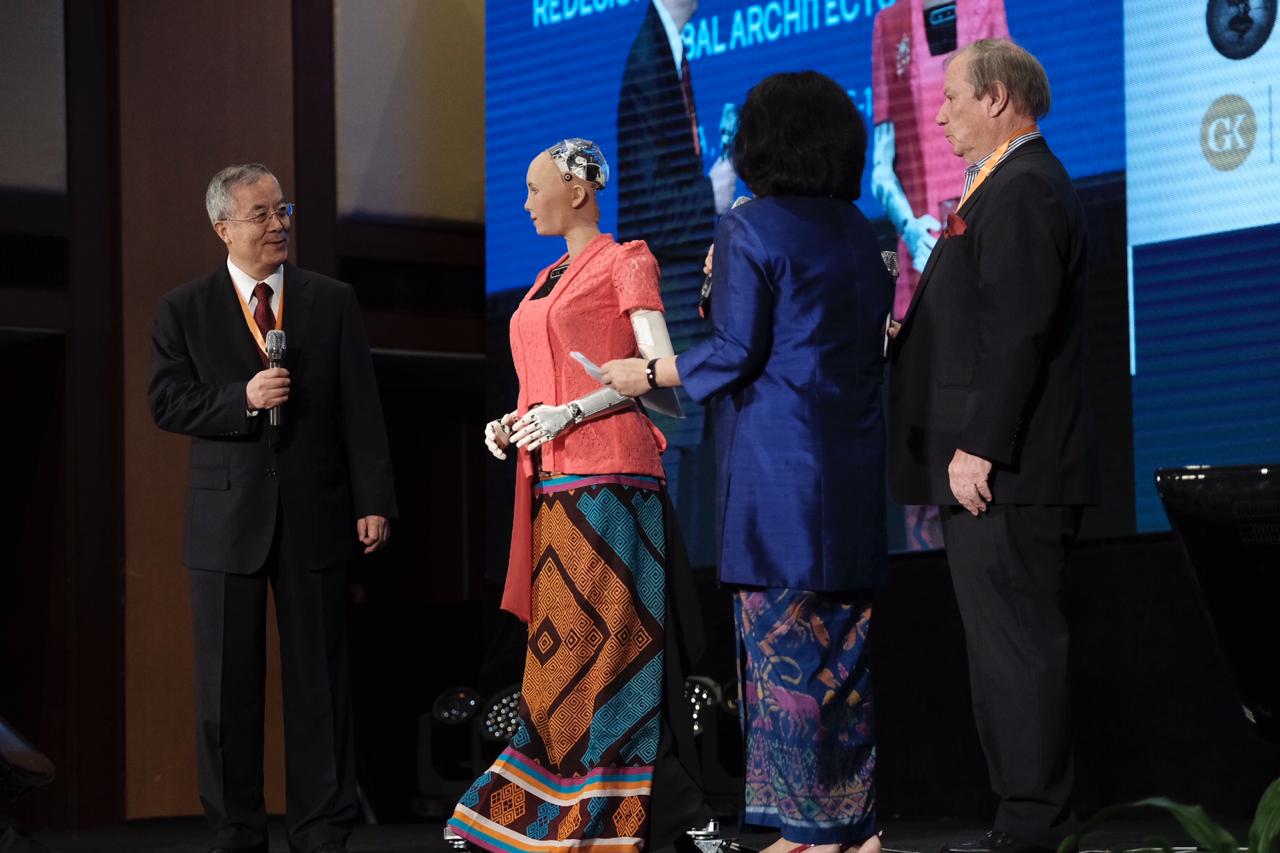
The Pacific Economic Cooperation Council (PECC) and the Centre for Strategic and International Studies (CSIS) co-organized the 2019 CSIS Global Dialogue in collaboration with the University of Prasetiya Mulya and GK Plug and Play Indonesia on Harness Frontier Technologies: Redesigning National, Regional and Global Architecture on 16-17 September 2019. H.E. Sri Mulyani Indrawati, Minister of Finance said that “if technological progress is used in a proper way, we are going to be able to have much higher productivity, value-added, efficiency and also reduce waste.”
The meeting took place against the backdrop of rising concerns on the rapid advancement of technology and how it will affect the global economy in terms of globalization, cyber security and future skills workforce. Participants engaged in a first-hand discussion with Sophia – a human-like robot modelled after actress Audrey Hepburn.
The discussions were organized into four plenary sessions:
- Plenary Session 1: The New Technology Frontier in Big Picture
- Plenary Session 2: Deep Economic Impacts of the Technology Revolution
- Plenary Session 3: Security and Ethics in the Cyber Society
- Plenary Session 4: Wrap up and Way Forward
In addition to the plenary discussions, stakeholders discussed several issues and recommendations during in-depth breakout sessions on:
- The Intelligent Economy: Preparing for the Transition: Education and Reskilling
- Trade and Investment Issues in the Digital Era: Regional and Plurilateral Initiatives: ASEAN, RCEP, TPP, APEC, Belt and Road Initiative: Common Denominators of Connected Intelligent Regions
- Taxing the Intelligent Economy Cooperatively, Inclusively and Sustainably
Minister Sri Mulyani engaged in a dialogue with the rapporterus from the breakout sessions hearing the summary of the views of those who had participated in those in-depth discussions.
Regional economies need to prepare and enhance governance to ensure that they can benefit from technology advancement. There are still grey areas that need to be addressed, such as job security, data protection and ethics. For example, while taxing robots might be one way to bolster government revenues given the need to help displaced workers but in turn there are risks of harming innovations.
There are urgent questions that need to be addressed in a cooperative manner both within societies and internationally on not only what technology can do, but what it should and should not do. One step that should be considered to enhance the free flow of data is for governments, companies, and societies to develop common definitions of security, privacy, and trust.
For more details see https://www.pecc.org/event-calendar/past-events/event/581-2019-csis-global-dialogue-harnessing-frontier-technologies-redesigning-national-regional-and-global-architecture
